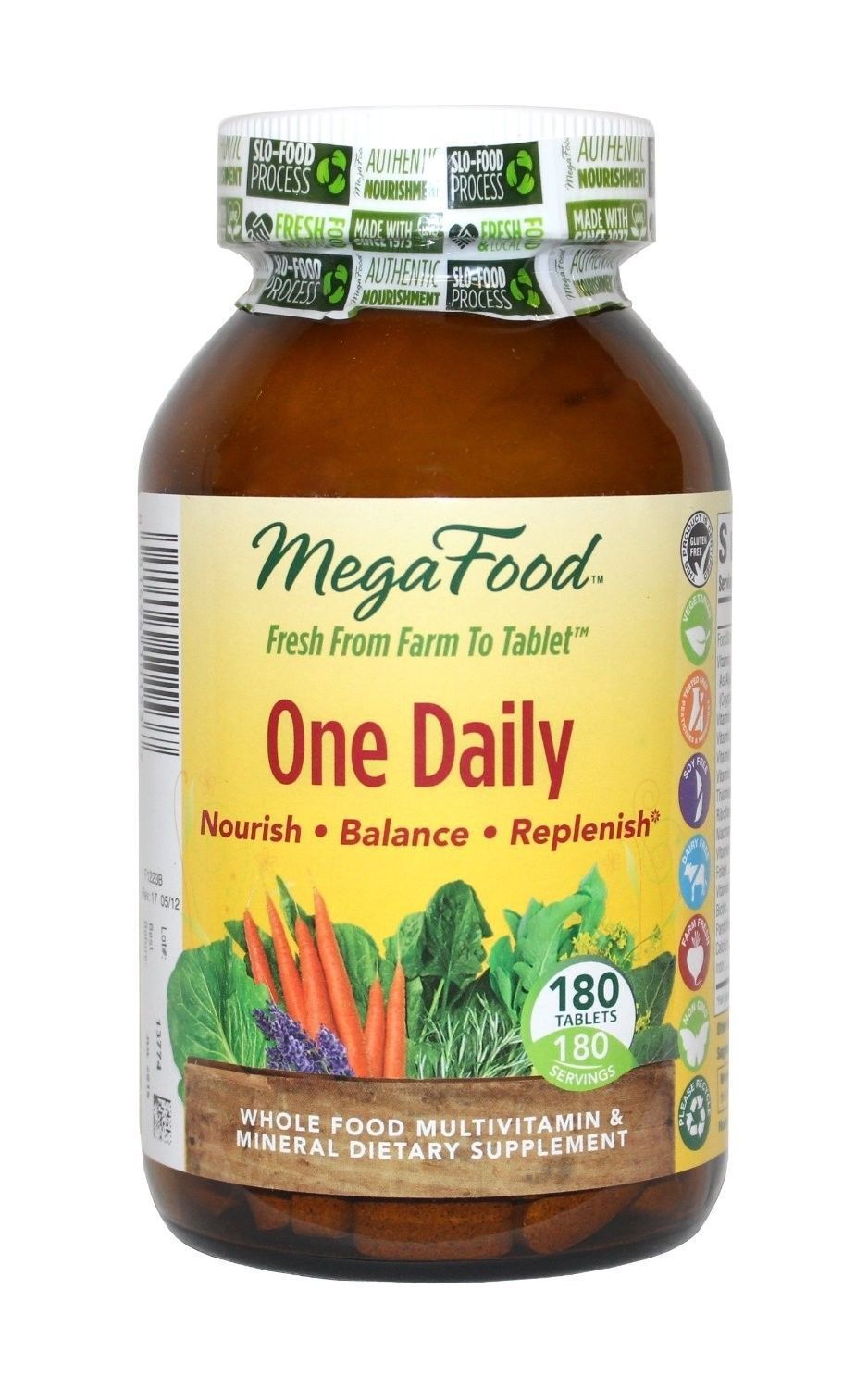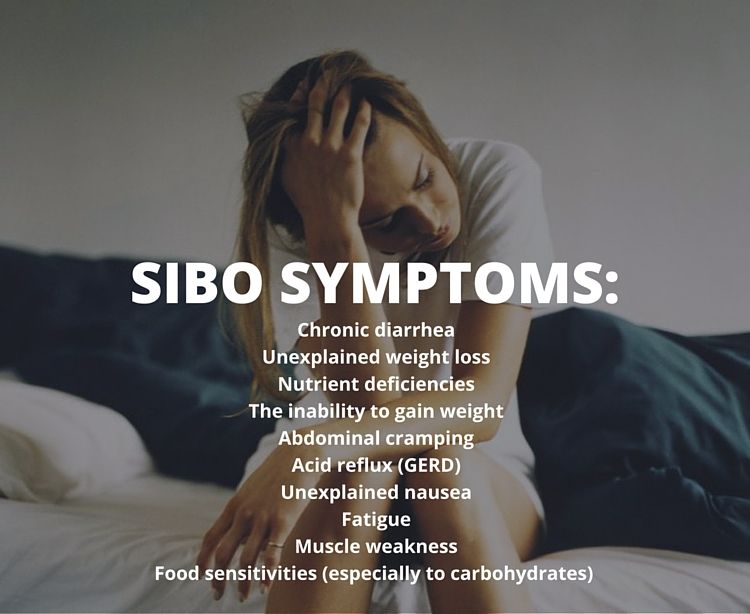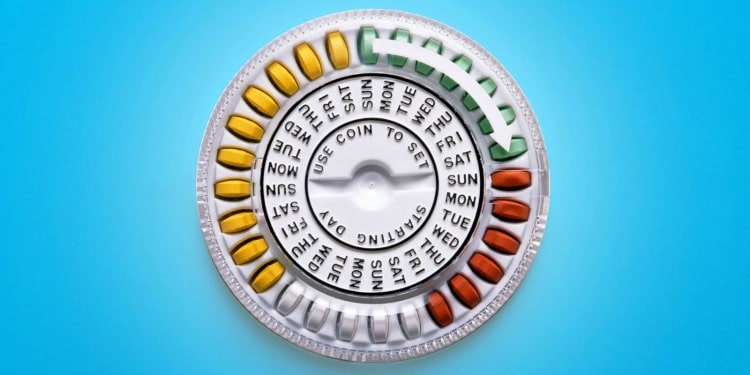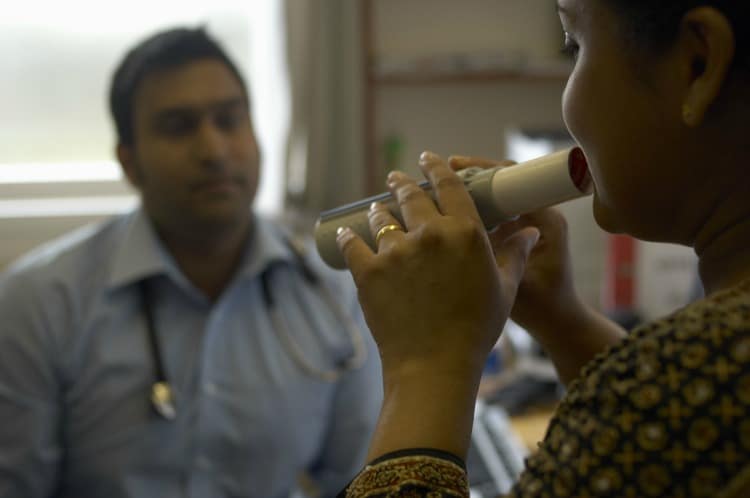In this article
Feel as if you’re in a fight with your digestive system on a regular basis?
Like something is “off,” but you can’t always predict what’s going to cause it to flare up?
Gas, bloating, and constipation are not only bothersome digestive symptoms, but they can also indicate that a deeper, underlying issue is present in your GI tract.
I’m not taking about the odd belch or “food baby” caused by bloating after a meal, especially if you’ve eaten wheat, gluten or dairy, which are common food sensitivities.
But if you experience these digestive symptoms on a regular basis – even when you’re doing everything “right” when it comes to eating for energy and health – they may be caused by a digestive problem called SIBO.
SIBO stands for small intestinal bacterial overgrowth. While most common digestive conditions affect the entire digestive tract or large intestine, such as candida or leaky gut, SIBO primarily upsets the balance of bacteria in the small intestine, which can lead to serious health complications.
And as suggested by studies, SIBO may be more common than we think (1).
Since SIBO is not yet a comprehensively understood digestive problem, many people who have SIBO are thought to be undiagnosed, with their symptoms chalked up to IBS (irritable bowel syndrome).
And that comes as no surprise, since many SIBO symptoms are often the exact same as IBS (2).
What Is SIBO and Why Is It Harmful to Health?
SIBO occurs when the natural, delicate balance of friendly bacteria in the small intestine is out of alignment. That can happen when different strains of bacteria from the colon migrate to the small intestine, where they don’t belong.
Under normal circumstances, the body has a complete system in place – including valves, muscles that contract in specific ways, and different intestinal fluids – to ensure that the contents of both the small and large intestines stay separate from one another.
That’s because the small intestine is only meant to contain very few strains of specific gut bacteria, to help synthesize and absorb nutrients from the food we eat (3).
The majority of our gut bacteria is found in the colon and large intestine, which help further facilitate the digestive process and move waste through the GI tract to be eliminated.
SIBO is detected in a person’s digestive tract when several strains of bacteria that are normally found in the large intestine are present in the small intestine.
SIBO is problematic to health for several reasons.
First of all, the small intestine is the site of nutrient absorption in the body. When too many strains of bacteria are present in the small intestine, it can interfere with the body’s ability to digest and absorb nutrients that are crucial to our health.
And not only that, but people with SIBO may also have a hard time digesting carbohydrates, since the small intestine is primarily where carbohydrates are absorbed (4).
When excess bacteria are present in the small intestine, they ferment the carbohydrates which produce the undesirable symptoms of SIBO, such as bloating and gas.
But nutrient deficiencies aren’t the only problem that can stem from SIBO. Aside from painful digestive symptoms, untreated SIBO can lead to autoimmune disorders, irreversible cell damage, and food sensitivities (5).
It’s possible to experience SIBO from the strains of bacteria that are already found in the small intestine, though it isn’t as common.
What Are the Symptoms of SIBO?
As previously mentioned, the most common SIBO symptoms are bloating, constipation, and gas.
But since SIBO symptoms are shared with several other irritable bowel syndrome (IBS) symptoms, SIBO can also be characterized by:
- Chronic diarrhea
- Unexplained weight loss
- Nutrient deficiencies
- The inability to gain weight
- Abdominal cramping
- Acid reflux (GERD)
- Unexplained nausea
- Fatigue
- Muscle weakness
- Food sensitivities (especially to carbohydrates)
SIBO has also been associated with chronic skin conditions that can be linked to poor digestive function, such as acne rosacea, leaky gut, fibromyalgia, osteoporosis and type 2 diabetes (6)(7).
What Causes SIBO?
It’s hard to pinpoint the exact causes of SIBO, especially since each person’s internal environment is different. Some people who have SIBO may already have health complications that predispose them to SIBO (such as diabetes), while others may appear to be perfectly healthy.
However, in many cases, SIBO has been linked to having low stomach acid, as well as small intestine dysmotility – which means the small intestine is functioning at a slower-than-optimal rate.
SIBO is also suspected to be caused by an overgrowth of unfriendly intestinal bacteria in the large intestine, and a slow bowel transit time (meaning it takes longer than 72 hours for food to move through your GI tract) (8)(9)(10).
Who is Most at Risk for SIBO?
SIBO is a complicated digestive problem that can affect anyone. However, there are certain risk factors that can leave you predisposed to SIBO, most of which deplete healthy intestinal bacteria and damage bowel mucosal cells, which are responsible for proper bowel muscular function (11).
- Taking prescription medications such as birth control pills or antidepressants.
- Irritable bowel syndrome (IBS).
- Irritable bowel diseases (IBD).
- Metabolic disorders such as diabetes.
- Excessive alcohol consumption.
- Frequent antibiotic use.
- Small intestinal obstruction or previous bowel surgery.
Since SIBO is still being studied, there may also be several hidden causes of SIBO that are yet to be uncovered. But as you can see, any dietary or lifestyle factor that can negatively impact the digestive system (such as consuming heavy amounts of sugar) puts you at a greater risk for developing SIBO.
Testing for SIBO
If you have symptoms of SIBO, you may want to get a SIBO test done. The most common test administered for SIBO is the hydrogen breath test (12).
Currently, breath testing is considered the most accurate and least invasive way to test for SIBO. A hydrogen breath test measures both hydrogen and methane to detect sugar, or carbohydrate, malabsorption in the small intestine.
Hydrogen is the gas produced by bacteria in the small intestine when carbohydrates are being fermented.
Normally, carbohydrates are digested by the bacteria in the small intestine and move through to the digestive tract. But when someone has SIBO, excess bacteria are also present in the small intestine – and these bacteria ferment the carbohydrates before they can travel through the rest of the digestive tract.
When the bacteria ferment the sugar from carbohydrates, they produce hydrogen and methane.
The hydrogen breath test can detect SIBO because the bacteria produce both hydrogen and methane into the blood after fermenting carbohydrates.
These gases are then transferred to the lungs and exhaled through the breath. The hydrogen breath test will then measure the levels of each gas in the breath to determine if SIBO is present (13).
Before undergoing a hydrogen breath test, patients are recommended to avoid eating slow-digesting carbohydrates (such as potatoes) for accurate results.
While hydrogen breath testing is the most effective SIBO test, there are other tests that are occasionally used to detect SIBO that can measure small intestinal bacterial overgrowth, such as the Lactulose Breath Test (LBT) and Glucose Breath Test (GBT) (14)(15).
SIBO tests can be administered by your physician or GI specialist, or they can be ordered online and taken at home. A SIBO test typically costs anywhere between $105 to $150.
SIBO Treatment
There are various types of SIBO treatment, which include antibiotics and natural treatments that support the digestive system through diet, lifestyle changes, and nutritional supplements.
Antibiotics such as rifaximin and amoxicillin are among the most frequently prescribed medications for SIBO, which can help kill off the overload of bad bacteria in the small intestine and reduce the inflammation associated with high levels of unfriendly bacteria (16).
But it’s important to note that while antibiotics may be helpful upfront, they do not address the underlying reason SIBO is present in the first place. That’s why antibiotics are considered a Band-Aid solution to SIBO, rather than a true healing method.
Now, I’m not advising antibiotics one way or another. But as with any medical condition, it’s imperative to address the root cause of SIBO, in addition to taking prescription medications.
It should also be determined whether prescription medications were a contributing factor in causing SIBO in an individual in the first place.
In any case, SIBO has several effective natural treatments that can support the body instead of antibiotics, which include dietary changes, lifestyle changes, and nutritional supplements.
In fact, studies that have compared treating SIBO with antibiotic treatments and herbal treatments have shown that herbal “antibiotics” are just as effective as antibiotics for treating SIBO (which I’ll elaborate more on in just a moment) (17).
Each SIBO natural treatment administered should be tailored to the individual’s unique needs.
SIBO natural treatments should include nutrients that support the health of the digestive system and encourage the growth of friendly bacteria. Natural treatments for SIBO include:
1. Taking a probiotic supplement daily.

Probiotics are considered non-pathogenic bacteria, which means they aren’t going to encourage the recolonization of bad bacteria in your system (18).
2. Eating dairy-free fermented foods.
Fermented foods – such as sauerkraut, kimchi and coconut yogurt –contain cultures of probiotics which further help support the health of the digestive system and may help promote the repair of intestinal damage associated with SIBO (19).
3. Herbal therapy.
Herbal “antibiotics” for SIBO have been studied as an alternative natural treatment.
Herbal preparations and capsules that include natural ingredients such as dill seed, berberine sulfate, chinese skullcap, lemon balm, and licorice root were shown to be just as effective as antibiotic therapy (20).
To determine which herbal preparations are best for you, it’s always best to speak with a qualified natural healthcare practitioner.
4. Replenishing nutrients such as calcium, magnesium and vitamin B12.
Vitamin and mineral deficiencies are often seen in those with SIBO because the small intestine’s ability to absorb nutrients can become impaired with an overgrowth of bad bacteria.

You can take these nutrients in supplement form, which have ideally been extracted from quality food sources, such as a whole food multivitamin.
Since each person is unique, you may also require additional nutrients. I recommend working with a qualified healthcare practitioner who can administer appropriate testing and recommend appropriate supplementation and nutritional protocols for you.
5. Following a SIBO diet.
A SIBO diet will typically focus on killing excess bacteria in the small intestine. Since the bacteria associated with SIBO thrive off the fermentation of carbohydrates, the foundation of a SIBO diet will typically aim to reduce the consumption of starchy carbohydrates, such as potatoes, bread, sweet potatoes and other glutenous grain products such as whole wheat, white flour and spelt flour.
The only exception to the consuming carbohydrates on a SIBO diet would be to include carbohydrates made from insoluble fiber, such as brown rice, chia seeds, flax seeds, and other gluten-free grains.
Most SIBO diets are recommended to be followed for a minimum of one month, which eliminate all foods that can exacerbate the symptoms of SIBO, while allowing the digestive tract to heal, repair and kill off unfriendly bacteria.
There are several common SIBO supporting diets.
Low FODMAP Diet
FODMAP stands for Fermentable Oligosaccharides, Disaccharides, Monosaccharides and Polyols. Essentially, FODMAPS are foods that contain indigestible sugars, which feed bad bacteria and allow them to thrive.
High FODMAP foods are specific carbohydrates such as fructose, lactose, fructans, galactans and polyols. These carbohydrates are found in certain fruits (but not all fruit), honey, dairy, soybeans, lentils, and legumes.
A low FODMAP diet replaces the above high FODMAP foods with low FODMAP foods such as gluten-free grains, animal products, nuts, seeds, non-dairy milk alternatives, and vegetables.
Specific Carbohydrate Diet (SCD)
The SCD diet aims to heal the intestinal tract and remove high sugar, or specific foods that cause digestive problems.
All grains, starchy vegetables, beans, lentils, and lactose containing dairy products are removed. However, The SCD diet does allow fermented dairy products such as yogurt.
These foods are replaced with high protein animal products such as meat, fish and poultry, as well nuts, seeds and high water content vegetables. Ripe fruit is also allowed on the SCD diet.
GAPS Diet
The GAPS diet is a gut-healing diet that was developed from the Specific Carbohydrate Diet and created by Dr. Natasha Campbell-McBride. The diet was developed to correct imbalanced gut microbes that can cause serious health issues, such as autism.
The GAPS diet may be helpful for managing symptoms of SIBO because it focuses primarily on healing and repairing the gut lining. And as you now know, a damaged gut lining can be a contributing factor to SIBO.
The GAPS diet is very similar to the SCD diet, but emphasizes the consumption of non-dairy probiotic foods, such as sauerkraut, and homemade mineral-rich vegetable and bone broths.
Get Help With Treatment
To learn more about low FODMAP diet, the GAPS diet and the SCD diet – and to determine if any of them is right for you – I recommend consulting a natural healthcare practitioner who is experienced in treating symptoms of SIBO.
There are also several written resources about each diet that can provide you with extensive information, recipes and introductory protocols.
As you can see, SIBO is a very complicated digestive problem, but one that can be efficiently resolved with various treatments. If you suspect you have SIBO, I’d personally recommend requesting a SIBO test, since untreated SIBO can lead to even worse health conditions down the road.
Feel Better Tomorrow
Drop belly bloat, restore energy, and beat sugar cravings by tomorrow with my free 1-Day Detox Plan. Get the mouthwatering “cleansing” meals for FREE right now, by clicking the banner below.




